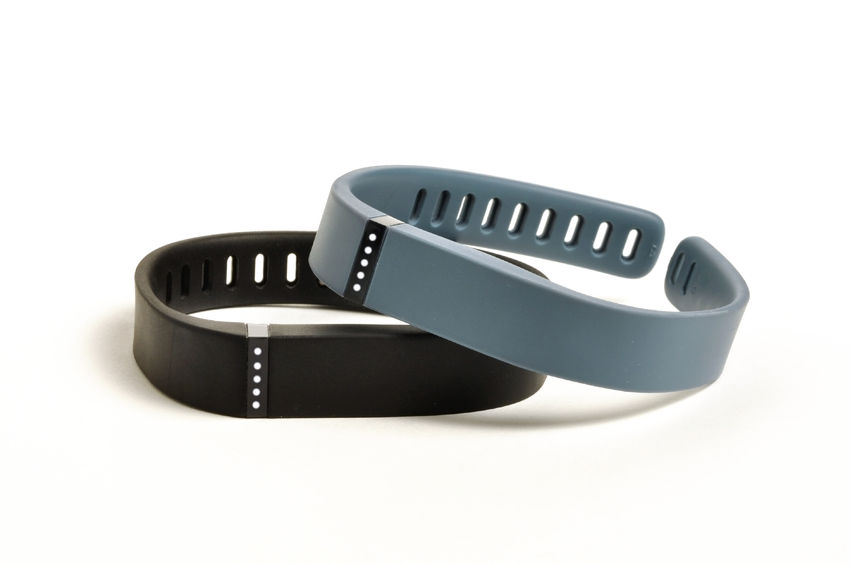You may have seen these cool, hip rubber bracelets that people have been wearing to track their activity level. Good-bye pedometers – hello fitness trackers!
Fitness trackers take the simple concept of being aware of your activity throughout the day and enhance it. A fitness tracker not only acts as a pedometer, but it can also track other things like the calories you spend, the food you take in and your sleep patterns. It can even act as an alarm clock or provide a nudge if you’ve been idle for too long.
Two popular brands are FitBit and JawBone. Both are worn like a bracelet and have a sensor which tracks how many steps you take (similar to how a pedometer works). But you can also download an app onto your smart phone and enter what you eat and any other activities you do during the day. It summarizes the information and provides charts and totals of how much energy you used, how many calories you consumed and overall how active you’ve been. There are some excellent review videos on FitBit Flex and Jawbone UP which explain the features of each one.
You can also set goals and share your stats with friends and other community members to help keep you motivated or hold you accountable.
There are several things I like about fitness trackers:
- They make you constantly aware of your activity and food intake.
- They provide you with immediate feedback and insight.
- They allow you to share your information with peers and build a community to help keep you motivated.
However, a couple things are a bit of a nuisance:
- It can be tedious recording all your activities and meals.
- They are not completely waterproof (so you’ll need to remove them when taking a shower, swimming or while doing any water sports).
- They can be expensive.
Like any other activity or food intake monitor, it’s handy to use for a short period of time (2 to 4 weeks) to provide a general idea of your fitness level and point out if there are certain things you need to improve upon. It’s definitely a good device to have if you want to be more informed and health conscious.
It’s not a good device to have, however, if the lack of information and awareness is not what’s keeping you from being active in the first place. People often say that they know what they need to do but still choose not to do it. A fitness tracker won’t motivate you to start exercising if that’s what you want. But it will help to track your progress once you get started (which can be helpful).
I think it’s great that these options are available. But do you have to spend the extra money to get healthy? Definitely not! There are other ways including something as simple as a pen and paper, a pedometer, a running/activity/food journal or websites and apps like MyFitnessPal, SparkPeople and LoseIt!
Many of these things can work just as well and do pretty much the same thing. However, they might not be as integrated or have all the bells and whistles that a fitness tracker has. As this video review points out, fitness trackers are good for people who want to become more active and need a little bit of motivation to get going.
Whether you decide to go with old school pen and paper, a fitness tracker or somewhere in-between, the most important thing is to find something that works for you.
Do you have a fitness tracker? What things do you use to help keep you on track and motivated?
